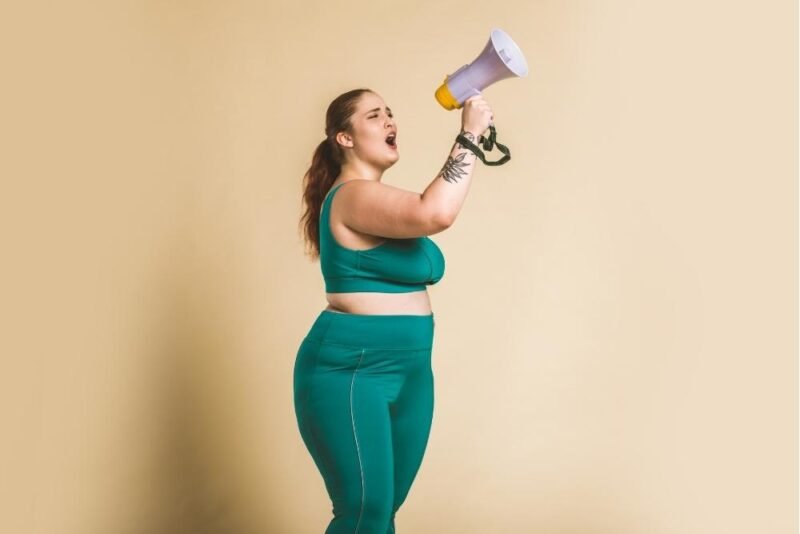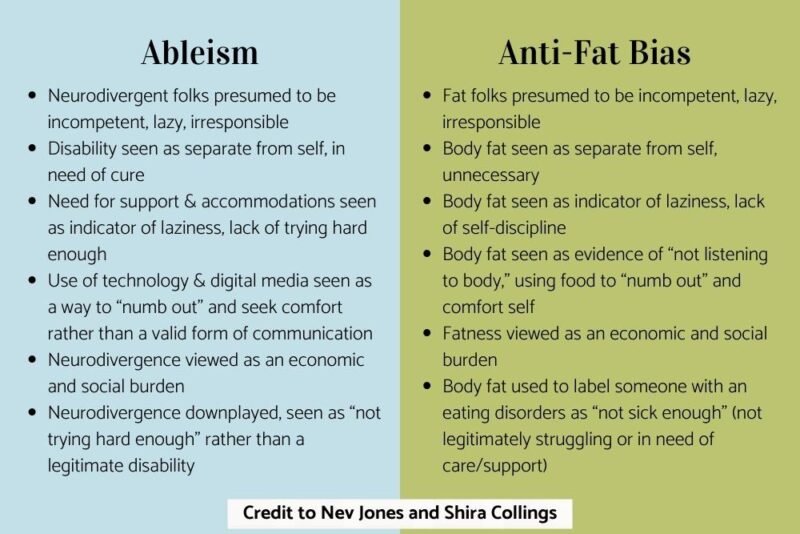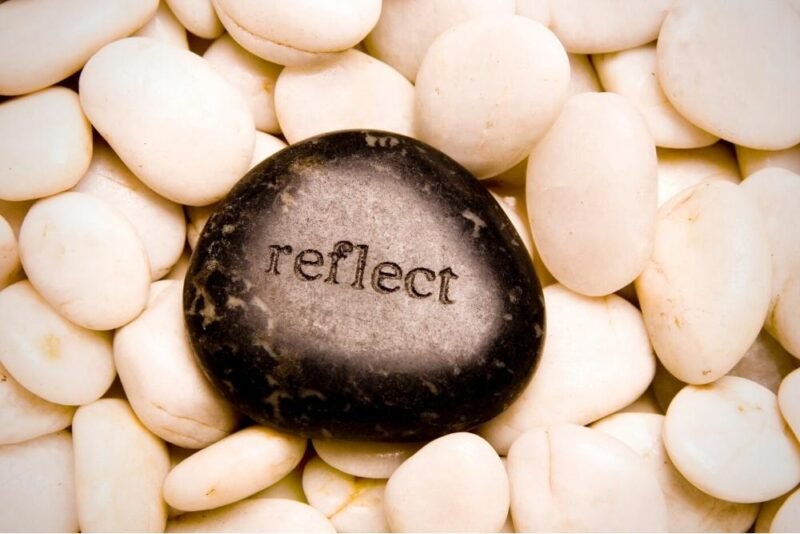
The topic of this site write-up is 1 I only started out to explore myself in the past yr or so. I was stunned, at 1st, when it sunk in how ableist food plan lifestyle is, with healthism and anti-fatness/sizeism as the inbound links. I understood how ablest (and healthist) my possess contemplating was back again when I was deeply enmeshed in eating plan society, myself. And now that I see this darker side of diet regime tradition, I just can’t unsee it, and I want you to see it, as well.
Eating plan tradition is just one of lots of social methods in which men and women are handled inequitably. It usually overlaps not just with ableism, sizeism and healthism, but also with racism, sexism, ageism and classism.
Eating plan tradition supports interpretations of own wellness possibilities as ethical character — it’s not just about body weight loss. Diet regime tradition does not aid the price of all bodies, and diet tradition does not exist in a vacuum.
Even if you really don’t contemplate by yourself to be on a “diet,” since you reside within just food plan culture, you will continue to have feelings, beliefs and behaviors — acutely aware or unconscious — that have been strongly influenced by diet plan tradition. Unless you do the operate to free of charge your self, of course.
Intently related to diet regime culture is health society, which, not incredibly, is also healthist and ableist, sending refined or not-so-delicate messages that exercising must be made use of to “overcome” or prevent incapacity, simply because disabled bodies have fewer value.

What is “disability”? What is “ableism”?
So, what do I suggest when I say “disabled”? I’m not only speaking about needing to use a wheelchair, a walker, a cane or other mobility help gadgets. Disabilities can be visible, or not obvious. Someone with a well being affliction that influences their power, stamina or mobility would be disabled, and that may possibly not be fully seen. Or, a person could be neurodivergent, which frequently is invisible.
“Neurodivergent” is expression for men and women with cognitive and/or neurological procedures that differ from what is considered — by cultural/societal and professional medical standards — to be “typical” or “normal.” This consists of individuals with autism, ADHD, stress, depression and borderline character, as effectively as people today who are highly sensitive to sensory stimulation.
I identified this definition by lawyer and social justice activist Talila “TL” Lewis to be detailed and effective:
“A procedure of assigning price to people’s bodies and minds primarily based on societally made ideas of normalcy, efficiency, desirability, intelligence, excellence, and fitness. These constructed concepts are deeply rooted in eugenics, anti-Blackness, misogyny, colonialism, imperialism and capitalism.
“This systemic oppression leads to persons and modern society pinpointing people’s benefit dependent on their society, age, language, appearance, religion, delivery or residing location, “health/wellness,” and/or their ability to satisfactorily re/generate, “excel” and ‘behave.’
“You do not have to be disabled to knowledge ableism.”
What ablism and anti-fatness/sizeism have in frequent is the best — held by the clinical procedure and culture at massive — that getting excess fat and staying disabled are both of those abnormalities that the person should do the job tough to conquer. Also, that getting a human body that is abnormal in this way signifies that you are not standard, and not very human. [Note that I use the word “fat” as a neutral descriptor, like short or tall.]
Which is finish and utter bullsh*t.

A initially glimpse at ableism and anti-body fat bias
Just as you don’t have to be disabled to encounter ableism, you do not have to be body fat to knowledge anti-fats bias. If you are a skinny human being who weight loss plans or exercise routines to continue being thin, it’s at minimum in element because you are afraid of turning into body fat. It may also simply because you are concerned of turning out to be “unhealthy” or suffering from a loss of mobility.
I’ve experienced shoppers in larger bodies who also transpire to have some mobility difficulties convey to me how crucial it was for them to try out to walk or transfer “normally.” This is significantly less about how movement feels in their body, and far more about how they may possibly be judged by other if they are fat AND they walk slowly. I’ve also experienced neurodivergent purchasers in larger bodies experience greater strain to mask indicators of their neurodivergence.
Systemic oppression based on irrespective of whether someone adheres to societal beliefs of “normalcy” and “intelligence” impacts disabled and neurodivergent people, as well as excess fat folks. This can contain:
- Focusing on lessening “symptoms” of neurodivergence — or on losing body weight — by means of nourishment interventions.
- Viewing neurodivergence — or “excess” body fat — as anything to “cure.”
- Focusing only on how neurodivergent and unwanted fat people today can cope in an ableist/anti-excess fat earth as an alternative of concentrating on creating the entire world more available and pleasant to a various assortment of folks.
On that last issue, men and women living in fats bodies may possibly have difficulties acquiring interesting dresses (or any clothing that are not personalized-created) that match. They might dread likely to restaurants, theaters or on airplanes for the reason that they know (or are not absolutely sure) if the chairs or seat will accommodate their bodies. People residing with a actual physical disability may well also have issues finding garments and seats (or entire structures) that are developed to fulfill their wants.

How healthism plays a connecting position
Healthism is a philosophy that overemphasizes personal duty in health outcomes and prioritizes pursuing health previously mentioned all else. This can include:
- Demonizing feeding on for pleasure, pleasure, convenience, or stimulation. (There should be no disgrace in locating satisfaction/pleasure/convenience from food stuff, and food can be an critical type of stimulation, or stimming, for some neurodivergent individuals.)
- Shaming individuals for picking out ease foods, inspite of the point these foodstuff may possibly be satisfying, and might be a preserving grace for hectic men and women as very well as men and women who find it challenging mentally or physically to cook a meal “from scratch.”
- Observing well being (and the pursuit of wellbeing) as a moral obligation.
I have a large amount to say on that last point, but let us commence by pointing out what could be apparent: A lot of people are (reluctantly) willing to give fat folks a go “as long as they’re nutritious.” This is portion of the “excellent fatty” trope — be active, appealing and effective, and really don’t accept your current entire body as Okay. (If you are body fat and dare to like by yourself, anyone could accuse you of “glorifying being overweight.”
I’ve experienced lots of customers in bigger bodies tell me they really feel they have to have to look like they are seeking to shed weight or “get healthy” — buying the salad, going to the gymnasium, bragging about their fantastic cholesterol and blood sugar amounts — even when they are in the method of unsubscribing from diet program society and earning peace with meals and their bodies.
When a person “concern trolls” a fats person on social media (or in other places), what do they say? Commonly a little something like, “but you’re not healthy” or “you’re heading to get diabetes.” Yep, ableism (and healthism) are inherently baked into anti-fatness.
When it’s genuine that bodyweight and well being are not carefully linked (association does not verify causation), I have come to abide by statements I make about that issue with another assertion that can be even thoughts-blowing: currently being healthy and/or pursuing wellbeing is not a moral essential.
Mic fall.

Health isn’t a assurance, or a measure of worthiness
Really simply just, “health,” as it is generally defined, is not a resource that is accessible to every person. Some persons hardly ever have that resource. Other persons intermittently have it. Nevertheless other individuals have it for a though, then really do not have it, and never ever have it all over again.
Like it or not, if we are fortunate ample to live very long plenty of, matters are heading to materialize to our bodies. We may uncover that our joints ache, that we acquire fat, that our blood strain tendencies increased, that we need to have to use a walker or a wheelchair, that we get cancer. Our bodies are no a lot less deserving. We are no less worthy.
When I was still executing “non-diet regime weight management” (which I eventually understood was not a detail) I would usually support purchasers set “meaningful” ambitions. In other words and phrases, rather of applying fitting into “skinny jeans” as a purpose, we would use “keeping up with your kids” as a objective. Yep, that’s absolutely ableist. Some mothers and fathers will under no circumstances be equipped to “keep up with” their youngsters or get down on the ground to engage in with their young children. That does not make them lousy or ineffective mothers and fathers.
Extra fat individuals and neurodivergent individuals have generally existed, so alarmist headlines (and the community health machinations guiding them) about the “ob*sity epidemic” or the “autism epidemic” seriously unfold the thought that anyone who diverges from what has been labeled “normal” ought to be removed or erased. We observed this evidently in a single not-so-charming chapter of our country’s historical past included what had been regarded as “ugly legislation.”
From 1867 to the commencing of World War I, some U.S. cities enacted so-named “ugly laws” banning individuals deemed “diseased, maimed, mutilated or in any way deformed so as to be an unsightly or disgusting item or poor person” from community spaces. While these legislation became less enforced over time, Chicago did not repeal its “ugly law” until eventually 1974, when an alderman took up the lead to, calling the regulation “cruel and insensitive” and “a throwback to the Middle Ages.”

A second seem at ableism and anti-fatness
For this section, and the graphic above, I give hefty credit rating to mental wellbeing researcher and professor Nev Jones and therapist Shira Collings, who gave a chat alongside one another at an RDs for Neurodiversity meeting I attended before this calendar year.
They mentioned the concept of “excess” is an underlying thread beneath anti-fats bias and ableism. Overall body excess fat/fatness is viewed as extra human body tissue, and as a consequence of excessive consuming. The message is also that the system by itself is virtually “excess” – that body measurement is independent of who we are. Exact same with neurodiversity – incapacity and incapacity lodging as an “excess,” accommodations as unneeded.
Both of those fat and neurodivergent individuals face objectification and disempowerment, as they are not seen as the authorities on their have requirements. I consider this is accurate for men and women who have other varieties of disability, as well.
Jones and Collings pointed out that neither body fat or neurodivergence are items that will need to be fixed or removed, and that our bodies are parts of our minds and ourselves.
- Our cognition (considering) is influenced by our bodies, and fat suppression can have a significant unfavorable affect on our thinking.
- When a person is inside of their established position range—which could entail currently being fat—this is essential and in simple fact crucial to how they function and who they are.
There’s some significant food stuff for considered there.

So now what? Approaches to mirror
Did this post feel like a whole lot? If it did, that is Ok. I hope it opens a doorway to exploring your very own feelings, feelings, beliefs and assumptions about what bodies (and minds) are worthy and worthwhile. Here are some thoughts to get you thinking:
- What ways of being diverse get labeled as “bad” or “inferior” in our society? Do you concur or disagree with these labels?
- In what ways do you label other folks as staying considerably less deserving? Do you experience like you do this consciously, or unconsciously (like probably you absorbed these thoughts from society but haven’t seriously examined or questioned them)? How are these people distinct from you? Do you recognize any worry that you could possibly someday be like these men and women?
- Really should persons have to transform their bodies or minds to “fit in,” or must our society and its devices evolve to be additional inclusive of all sorts of persons?
- Do you choose (consciously or unconsciously) people today who are “unhealthy”? Do you make a difference between owning a disease or disability that is “preventable” vs. 1 which is not? Why?
- Do you believe that it is a ethical imperative to go after wellness? Why or why not? If you do, how does this align (or conflict) with other beliefs you have about entire body autonomy?
- Do you imagine that we have own control over our health? If indeed, can you assume of any or illustrations the place that’s not the case?
- If you know that you judge people based mostly on their dimension, ability, health and fitness or other variables, how does that make you feel? Have you been judged by other folks (or on your own) centered on a little something about you that’s distinctive? How did that make you come to feel?
- Do you stand opposed to some sorts of oppression (say, racism) but find that you enable other kinds of oppression slide by? Why?
Some of these questions might expose responses about on your own that make you cringe. If so, that’s Okay. Method them with curiosity and self-compassion, and if you discover that you have some beliefs or mindsets that have to have to modify, then start to modify them. If we are not informed of our views, emotions, beliefs and behaviors, then we continue to be caught. Awareness (again, paired with curiosity and self-compassion) opens the doorway to realizing much better, and undertaking better.
Carrie Dennett, MPH, RDN, is a Pacific Northwest-based mostly registered dietitian nutritionist, freelance writer, intuitive ingesting counselor, author, and speaker. Her superpowers include things like busting diet myths and empowering girls to come to feel improved in their bodies and make foodstuff alternatives that guidance satisfaction, diet and health and fitness. This submit is for informational purposes only and does not constitute individualized diet or clinical guidance.
 Print This Write-up
Print This Write-up






More Stories
Energy Medicine
Schools of Perfection – High Quality Training at Online Nursing Schools
Home Health Aide Course